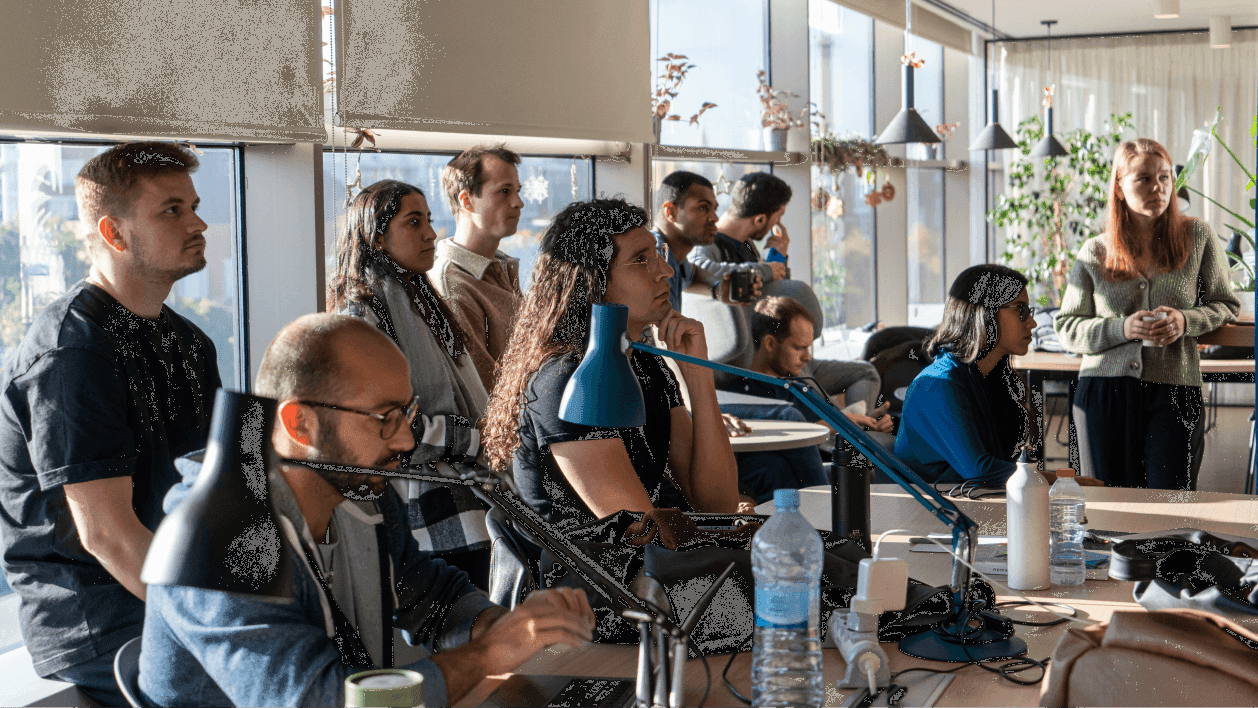New Laws for Students in Spain!
On July 27th the Spanish government modified its existing immigration laws. Included within these changes is the ability for international students to work for up to 30 hours a week while studying and to live in Spain for one year while looking for a job after finishing their studies.


Writer at Harbour.Space University
On July 27th the Spanish government modified its existing immigration laws. Included within these changes is the ability for international students to work for up to 30 hours a week while studying and to live in Spain for one year while looking for a job after finishing their studies.
You enjoyed your time studying at Harbour.Space in Barcelona and you don’t want to leave after graduating? Well, now, you can stay! Or maybe you are a new international student and want to work during your free time, but don’t know if you can? Fortunately, you can, and your working hours have increased! Why? Because on July 27th the Spanish government modified its existing immigration law, Royal Decree 557/2011 (RLOEX) and, among its many modifications, the new reform facilitates employers to hire workers, eases work permit requirements, helps foreigners in an irregular situation to achieve regular status through training programs, and for international students, it gives them the opportunity to work for up to 30 hours a week while studying and to live in Spain for one year while looking for a job after finishing their studies. This change is into action from August 16th, so if you are just graduating from one of our programmes and you want to live in Spain, now you can!

What Really Changed for International Students Living in Spain?
Previously, the law stated that foreigners with a student visa could only work for 20 hours a week while they were hitting the books. Now, international students will be able to legally work for up to 30 hours per week. Most importantly, before, if they wanted to live in Spain and get a work permit after graduating they needed to have their student visa for more than three years and only then could they switch to a work permit visa. However, most programmes, especially Master’s, don’t last that long. Therefore, it was really difficult for an international student to get a work permit. But that has changed, as of August 16th, after finishing their studies, international students can live in Spain for another year while they are looking for a job without requesting an extension of their current visa. Also, once they get a job, graduates just have to show their corresponding title or certification and the switch to a work permit will be much faster. One of the main benefits is that when international students finish their programmes in Spain future employers don’t have to take into consideration either the shortage list or Spain’s national unemployment situation.
Remember that you can get a work permit as an employee (“por cuenta ajena”), which only requires you to get a job offer, or you can start your own company (“por cuenta propia”). If you choose the latter because you studied High-tech Entrepreneurship and you are about to start your own business, you have to present a business plan which needs to clearly define the activity of your company, including a financial projection; you must be realistic and very clear.
With these changes international students can now accomplish their dream of studying and living in Spain with less hassle. And, if you haven’t joined Harbour.Space yet, but want to study in Spain and are torn between Madrid or Barcelona, this article might help you speed-up your decision and come to study at Harbour.Space in Barcelona.
Other Modifications to Spanish Immigration Law
Along with the reforms that affect international students living in Spain, another important change in the law is that the employee shortage list has been expanded by the Ministry of Economic Affairs and Digital Transformation. Additionally, if a company needs to urgently fill a position, they won’t have to take into consideration either the shortage list or the national unemployment situation when hiring a foreign worker.
The other main changes are:
- Foreign workers in an irregular situation who have lived in Spain for at least two years can now seek temporary residency papers by enrolling in special technical training courses for jobs in high demand sectors. This is called “arraigo para la formación” and it is a one-year permit (renewable for another 12 months). The upside, when the person finishes their training or studies, they will be allowed to have a work permit.
- The law helps self-employed workers obtain their work permit by reducing the current requirements.
- It is now easier for foreigners who need to bring their immediate family to Spain (“reagrupación familiar”). And, when they arrive, the spouse can now have a work permit either as an employee or as a self-employed individual.

In a Nutshell…
- International students can legally work for up to 30 hours a week.
- After graduating, international students can live in Spain for a year while looking for a job without requesting an extension of their current visa.
- The employee shortage list has been expanded and if a company needs to urgently fill in a position with a non-EU member, they don’t have to take into account the national unemployment situation.
- Foreign workers with an irregular situation for a duration of at least 2 years can now enrol in technical training and get a one-year permit (renewable for another 12 months).
- It will be easier to obtain a work permit for entrepreneurs that want to live in Spain.
- It will be easier to bring your immediate family to Spain with the “reagrupación familiar” reform.
If you want to learn more, review the information at the Ministerio de Inclusión, Seguridad Social y Migraciones or check.
If you enjoyed this article, are interested in studying with us in Barcelona or Bangkok, want to learn more about living abroad or want to read other articles about Harbour.Space check out these blogs:
- Study abroad in Barcelona and Bangkok: Ultimate Guide for an International Learning Experience (Scholarships available)
- A Health and Wellness Guide to Barcelona
- Bangkok, Thailand: Places to see, eat, drink, and shop
- Madrid or Barcelona, which city is the best to study abroad?
- Students form Harbour.Space Barcelona win top European Competition
If you are interested in other programmes take a look at Harbour.Space’s website to see which ones might help your professional development. If you have any inquiries or thoughts, you can write to us at hello@harbour.space.
Thanks for reading
If you’re interested in further growth, take a look at our website to learn what your future could look like at Harbour.Space. Lastly, get in touch with us at hello@harbour.space to let us know your thoughts!
5 Myths about Studying Abroad
Dive into the truth behind job market advantages, diverse programmes, language bridges, and scholarship opportunities.

